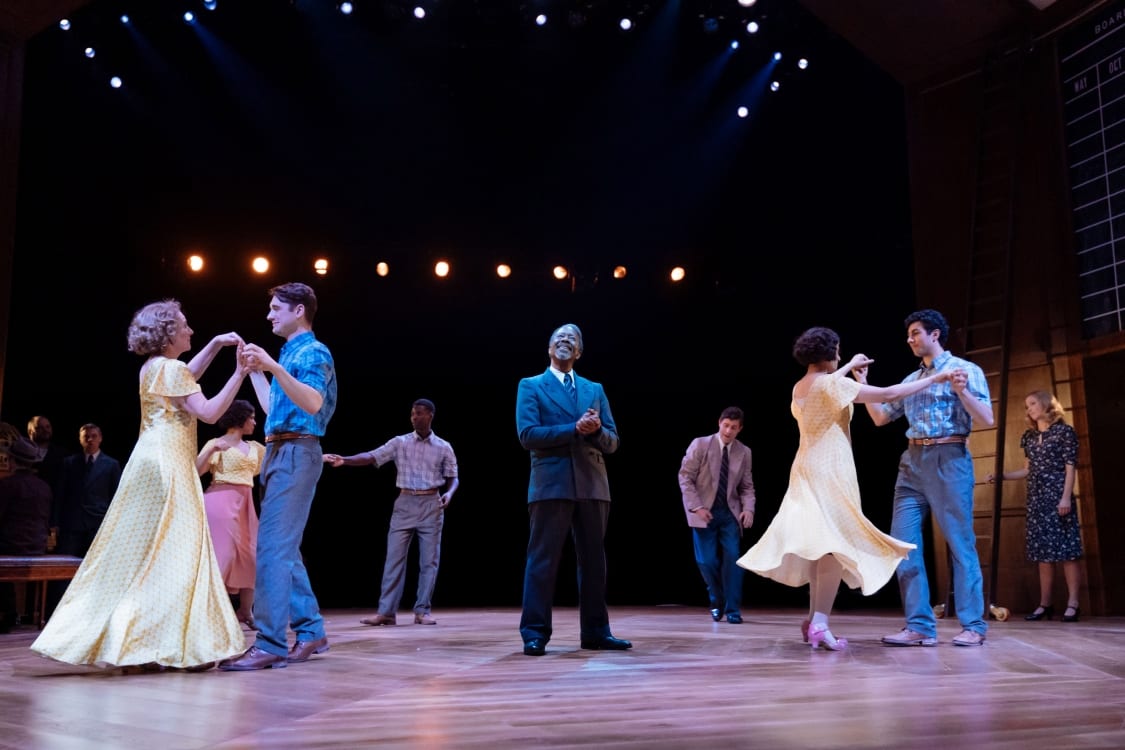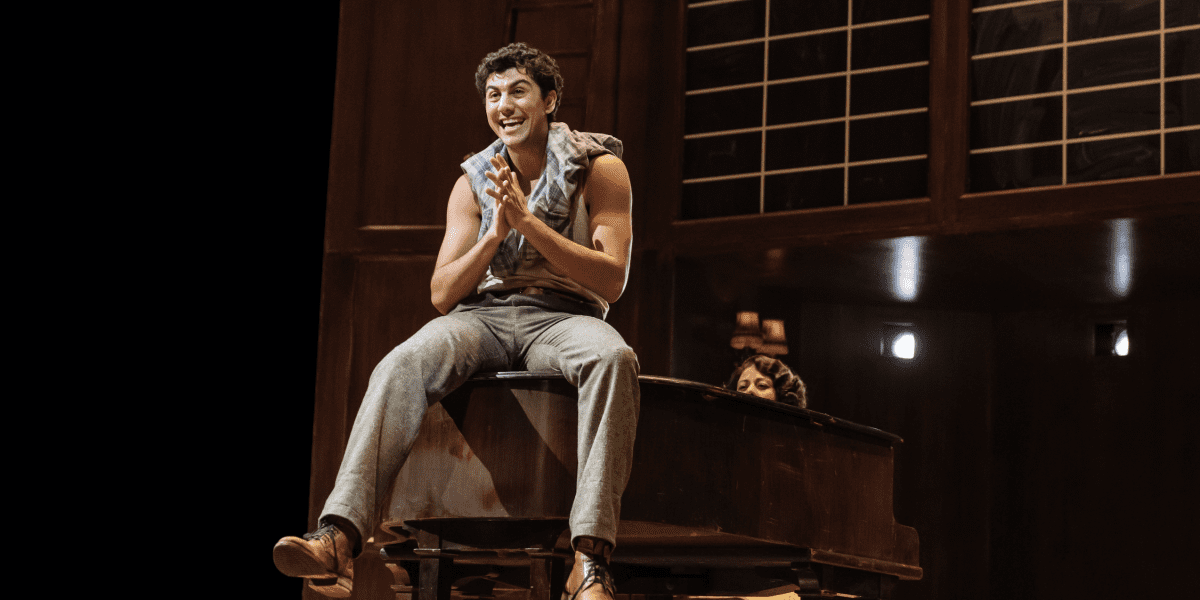The American Clock is a lavish production of a confusing and disjointed play. It reminded me of nothing so much as a stage version of The Big Short. Half drama, half documentary, fully fascinating but largely for the glimpses of the real story of the crash and less for any sense of being lost in the lives on stage.
There isn’t much story – more a series of vignettes showing the effect of the Depression on different groups of people across America from Wall Street to Mississippi. We have a few characters that we get to know – in particular Clarke Peter’s Robertson, the man who got his money out before the crash who therefore acts as our disinterested narrator. There is also the Baum family whose fall from wealthy middle class to the poverty line is tracked throughout the play. However, this is made increasing hard to follow as the characters are played by three different sets of actors. With no real explanation why, this is a mistake in a play that is already somewhat hard to follow.
The play is staged in the round with seats on the stage. This is fun and innovative, but does mean a restricted view. I had no sight of the rather excellent jazz band and some of the action. Other staging decisions worked better for me including the centrality of jazz to the show. This gave it a reason and backbone for the frenetic pacing as well as a multimedia sense. It invoked the age from the “The Shoot Horses Don’t They?” dance contests to the Billie Holiday laments echoing through the welfare scenes.
The play is exceptionally timely – which makes up for some of what it lacks in drama. Who needs a play when you can stage a morality documentary about a crash that has never felt closer to the problems of our age? There is a really interesting sense of how America got where it did in the thirties and the feeling that only the war and the economic investment it drove was able to pull the country and world out of its nosedive.
What would be interesting though is an examination of how this was all forgotten. How did we get to the point where society was able to repeat mistakes that killed so many and harmed so much? On that Miller is sadly silent. Which is a shame, as with a dramatist as talented as Miller at examining flawed people it might have given us more insight into what we shouldn’t be doing now.
This production of The American Clock does a lot to make a tough piece of work watchable if not followable. It’s atmospherics are perfect, combining the excesses of the gilded age and the menace of what followed. But on occasion, like the play it is too jazz, too clever and too interested in being clever rather than being interesting to completely work.

